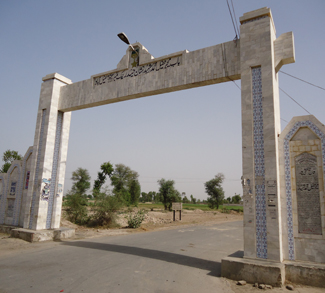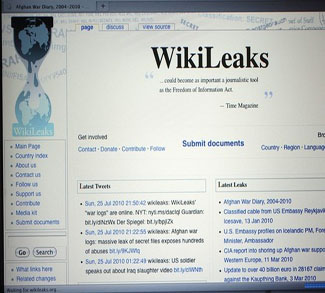FORECAST
Far from being a routine reshuffling exercise, Pakistan’s appointment of a new chief for the Inter-Services Intelligence (ISI) comes amid growing US pressure for reform and concern about the premier spy agency’s loyalty in the “war on terror”.
On Monday, army chief General Ashfaq Kayani appointed Lieutenant-General Ahmed Shujaa Pasha, formerly head of Military Operations, as Director-General of the ISI. Pasha replaces Lieutenant-General Nadeem Taj, a loyalist of former president Pervez Musharraf, who held the post since October 2007.
The Pakistani military says the appointment of a new intelligence chief and 14 other appointments were a routine matter, however the reshuffling of Pakistan’s top brass is more likely the result of growing pressure from the US for reform within the ISI. Pakistan President Asif Zardari’s secret meeting with CIA Director Michael Hayden over the weekend in New York lends credence to this view, as well as reports that as late as Sunday evening, US officials were calling for the replacement of Taj.
The US’ desire for reform stems from concerns that for too long, Pakistan’s military and intelligence agencies have been playing a double game: accepting billions of dollars in US aid to eliminate Al Qaeda while actively aiding or turning a blind eye to the Taliban and other extremists who threaten the US, Afghanistan and, increasingly, Pakistan’s fragile democracy.
In particular, the US, India, and Afghanistan have accused the ISI of involvement in the July suicide bombing of the Indian Embassy in Kabul that killed more than 50 people while US officials believe ISI agents tipped off militants before US missile strikes against targets in Pakistan. Conversely, the unabated lawlessness of the Pak-Afghan border and a recent deadly suicide bombing outside a major hotel in Islamabad has increased US criticism that Pakistan is turning a blind eye to militants.
Thus the US believes its alliance with Pakistan has brought diminished returns, resulting in the US military’s rationale for aggressive unilateral operations in the “war on terror” and mounting pressure on Pakistan’s nascent civilian government to exert more control over the ISI.
The US intelligence community is likely to respond to Lieutenant-General Pasha’s appointment with cautious optimism. Cautious because the ISI is still firmly under military control and it remains to be seen whether the agency can wean itself off double-games—in large part facilitated by the CIA and the changing tides of US foreign policy—and cease viewing militants as long-term assets to gain leverage in Afghanistan and Indian Kashmir. Optimism because Pasha’s qualifications, experience, and anti-Taliban views could signal the ISI’s reorientation from its traditional Kashmir/India focus and restore US confidence.
Only time will reveal whether Pakistan’s new spy chief signifies real change or is merely a window dressing.
Established in 1948 in the wake of the Indo-Pakistani war, the ISI is tasked with safeguarding Pakistan’s interests and national security, monitoring opposition politicians, and sustaining military rule in Pakistan. More than 80 per cent of the ISI’s cadres and officers belong to the military.
The ISI has played a key political role in a country that has spent more than half of its 61-year history under military rule. It has been referred to by critics as a “state within a state” and is feared by neighboring Afghanistan and India, as well as Pakistan’s civilian politicians whose governments have been overthrown by military coups.
Prime Minister Yousaf Raza Gilani’s government attempted to bring the elite agency under the control of the interior ministry in July 2008, however the move was promptly rebuffed by Pakistan’s powerful military establishment.
SUMMARY OF EVENTS: September 29 – October 6, 2008
NORTH AMERICA
United States
The US House of Representatives Monday dramatically rejected a 700-billion-dollar Wall Street bailout, sending stocks crashing to their worst single day loss ever and deepening the US financial crisis.
The US Senate voted Wednesday evening on a revised 700 billion dollar Wall Street bailout, after the House of Representatives sparked economic turmoil by rejecting the original package.
New evidence from former U.S. officials reveals that the George W. Bush administration failed to adopt any plan to block the retreat of Osama bin Laden and other al Qaeda leaders from Afghanistan to Pakistan in the first weeks after 9/11.
The U.S. Senate has approved a landmark agreement to end a 34-year ban on U.S. civilian nuclear trade with India, handing President Bush a key foreign policy victory in his remaining months in office.
The US Senate on Wednesday approved a 700-billion-dollar Wall Street bailout package by a vote of 74-25 amid a widening global crisis sparked by the collapse of the US housing market.
The Department of Homeland Security has been given the money it needs to begin turning international spy satellites within the country’s borders, despite lingering fears about the program’s lack of focus and the potential for it to infringe upon Americans’ civil liberties.
The Bush administration has announced plans to sell billions of dollars in arms to Taiwan, a decision certain to anger Taiwan’s rival China.
The lower house of the US Congress passed the $700bn rescue package for the nation’s troubled economy Friday.
SOUTH AMERICA
Brazilian President Luiz Inacio Lula da Silva and his Venezuelan counterpart Hugo Chavez inked seven agreements on Tuesday in a bid to step up bilateral cooperation.
WESTERN EUROPE
The Dutch-Belgian bank Fortis, Britain’s Bradford and Bingley, and Iceland’s Glitnir, were all partially or fully nationalized after failing to roll-over debts in the short-term money markets, while the French state pledged support for the Franco-Belgian lender Dexia after the share price collapsed on reports of a capital shortage.
France
France heaped pressure on Gordon Brown Thursday night by floating an ambitious plan for a €300 billion (£237 billion) bailout fund to rescue crippled banks across Europe.
French prosecutors allege that corruption in an Angolan arms trading case went to the pinnacle of power in France, starting with the son of then-President Francois Mitterrand, and growing into a tangle of laundered money and parallel diplomacy that left a stain on France’s relations with Africa and on the country’s reputation in the global arms market.
EASTERN EUROPE
Czech Republic
The Czech government approved the agreement on strategic cooperation with the United States in anti-missile defense, referred to as a framework agreement, the Czech news agency CTK said on Wednesday.
Russia
Russia accused the United States on Monday of stonewalling negotiations on a new pact on reducing the size of the two powers’ nuclear arsenals, the latest sign of deteriorating Russian-U.S. relations.
Russia hopes to deploy a new nuclear missile next year designed to penetrate anti-missile defenses and will build eight submarines to carry it, defense officials said on Thursday.
Russia agreed on Thursday to spare Ukraine from a shock rise in its gas export prices despite a row over Ukrainian arms sales to Georgia with which Moscow fought a brief war in August.
Ukraine
The pirate hijacking of a Ukrainian cargo ship loaded with tanks off Somalia has refocused attention on arms-trafficking by the former Soviet republic, one of the world’s 10 biggest arms exporters.
MIDDLE EAST
Iran
Iran said on Monday it would not halt sensitive nuclear work as demanded by the U.N. Security Council in its latest resolution on Tehran’s atomic program that the West believes is aimed at making warheads.
Syria
Syria said on Friday it was cooperating fully with a U.N. inquiry into allegations of secret nuclear work in the country but would not go as far as opening up military sites because this would undermine its security.
EAST ASIA
Stocks plunged in Asia Tuesday as fears of escalating financial turmoil triggered panic selling on world markets after Washington policymakers unexpectedly shot down a US financial rescue plan.
SOUTH ASIA
Afghanistan
Britain’s Ambassador to Afghanistan has stoked opposition to the allied operation there by reportedly saying that the campaign against the Taliban insurgents would fail and that the best hope was to install an acceptable dictator in Kabul.
Pakistan
A missile strike by a suspected US spy drone hit a house in a Pakistani tribal area bordering Afghanistan, killing at least four people and wounding nine, security officials said Wednesday.
A U.S. missile strike in a Pakistani tribal region known as a haven for Taliban and al Qaeda fighters killed up to 21 people, including 16 foreigners, on Friday, Dawn News television channel reported.
AFRICA
Somalia
Somali pirates holding a Ukrainian ship carrying 33 tanks reiterated their demands for a $20 million ransom on Tuesday and denied three of their number had died in a shootout.
Marsha Reid is a contributor to Geopoliticalmonitor.com



